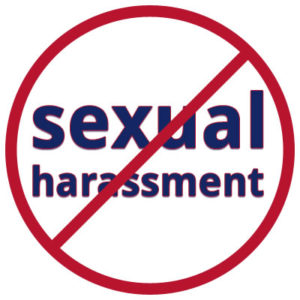 A sexual harassment policy stipulates that no nanny or other employee should be subject to unwelcome verbal or physical conduct that is sexual in nature or that shows hostility to the employee because of his or her gender. Sexual harassment can have devastating effects on the workplace. Therefore, household employers need to take every step necessary to prohibit sexual harassment from occurring. Many workplaces have a zero tolerance policy, which means an employer will not tolerate any sexual harassment whatsoever.
A sexual harassment policy stipulates that no nanny or other employee should be subject to unwelcome verbal or physical conduct that is sexual in nature or that shows hostility to the employee because of his or her gender. Sexual harassment can have devastating effects on the workplace. Therefore, household employers need to take every step necessary to prohibit sexual harassment from occurring. Many workplaces have a zero tolerance policy, which means an employer will not tolerate any sexual harassment whatsoever.
It is best for an employer to include an anti-harassment/anti-discrimination policy in his or her employee handbook, which specifically addresses sexual harassment. The policy should clearly state that:
- a nanny or other employee and employer(s) within the household are expected to treat one another with respect;
- the employer will act immediately upon learning of a sexual harassment complaint. An employee should promptly file a complaint if the employee is made to feel uncomfortable or finds behavior unwelcome, offensive, or inappropriate. A complaint may be made formally or informally. The law stipulates that the perception of misbehavior must be reasonable. Employers need to assure employees that all complaints of sexual harassment will be handled as confidentially as possible;
- the employer mandates a workplace free from all forms of discrimination; and,
- everyone within the household is expected to act respectfully in order to enjoy a positive working environment.
Employers must be prepared to respond to sexual harassment in the workplace—just as they are responsible for preventing any harassment or discrimination within the workplace. The employee handbook should include what is prohibited behavior in the workplace and what actions will be taken when a sexual harassment complaint is filed. In addition, the policy must state that, per federal law, no employee will experience retaliation for submitting a sexual harassment complaint.
Crossing the Line
The line between home and work, domestic and business, personal and professional, has been blurry for a long time. Unfortunately, sometimes it becomes more than a story of cheating and closed-door liaisons and becomes much more serious. As a result, domestic workers (especially undocumented illegal immigrants) are frequently exposed to verbal and physical abuse, do not know their legal rights or the recourse to any legal protections, and are afraid of losing their jobs if they complain about any harassment or seek legal action.
Many household employees are excluded from Title VII of the Civil Rights Act, which bans sexual harassment in the workplace. But in New York, the Domestic Workers’ Bill of Rights stipulates that it is an unlawful discriminatory practice for any domestic employer to engage in unwelcome sexual advances, request for sexual favors, or other verbal or physical contact of a sexual nature to any domestic worker.
Review the federal guidelines on sexual harassment in the workplace, and contact us at (518) 348-0400 for more information.
